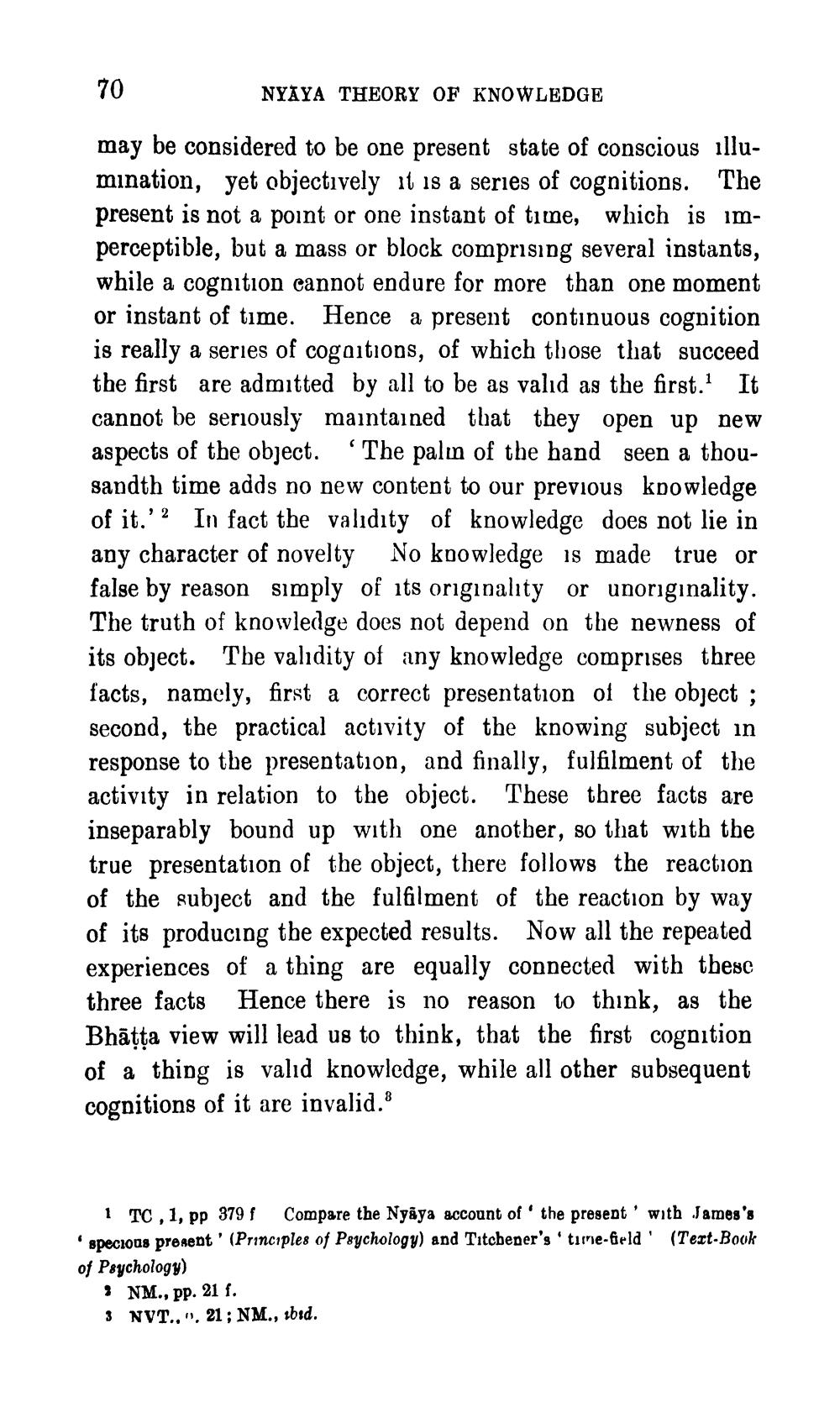________________
70
NYAYA THEORY OF KNOWLEDGE
may be considered to be one present state of conscious illumination, yet objectively it is a series of cognitions. The present is not a point or one instant of time, which is imperceptible, but a mass or block comprising several instants, while a cognition cannot endure for more than one moment or instant of time. Hence a present continuous cognition is really a series of cogations, of which those that succeed the first are admitted by all to be as valid as the first. It cannot be seriously maintained that they open up new aspects of the object. The palm of the hand seen a thousandth time adds no new content to our previous kpowledge of it.'? In fact the validity of knowledge does not lie in any character of novelty No kpowledge is made true or false by reason simply of its originality or unoriginality. The truth of knowledge does not depend on the newness of its object. The validity of any knowledge comprises three facts, namely, first a correct presentation of the object ; second, the practical activity of the knowing subject in response to the presentation, and finally, fulfilment of the activity in relation to the object. These three facts are inseparably bound up with one another, so that with the true presentation of the object, there follows the reaction of the subject and the fulfilment of the reaction by way of its producing the expected results. Now all the repeated experiences of a thing are equally connected with these three facts Hence there is no reason to think, as the Bhātta view will lead us to think, that the first cognition of a thing is valid knowledge, while all other subsequent cognitions of it are invalid.
1 TC , 1, pp 379 | Compare the Nyâya account of the present' with James's specious present' (Principles of Psychology) and Titebener's time-feld' (Text-Book of Psychology)
NM., pp. 21 f. 3 NYT.,, 21; NM., ubed.




